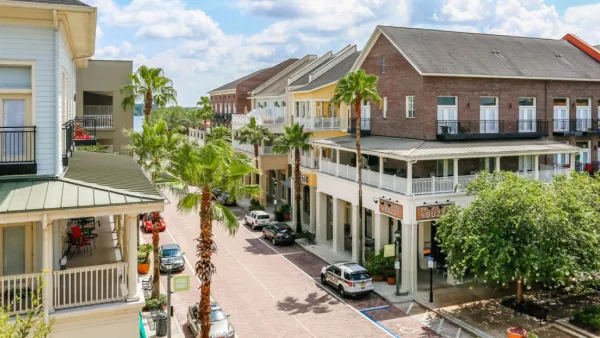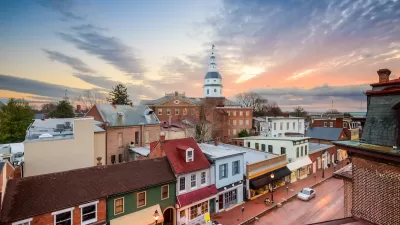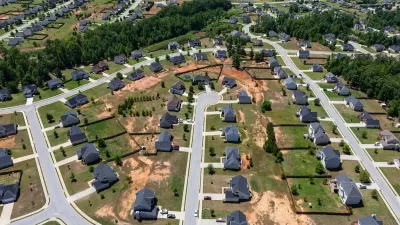David Steel explains how Buffalo's zoning code not only makes it impossible to build the type of neighborhoods people love, but also guarantees that low density development pays less taxes.
"The result of this legal and economic attack on urbanism is to create a city full of parking lots and empty space," says Steel.
To prove his point, Steel compares a much-loved 1890s building on Elmwood to a bank building with parking lot on the same street:
"In raw dollar terms the dense apartment building is paying $6773 more in taxes than the bank. But if you consider that the bank property, if built out to the level of the apartment building, could be paying as much as $37,000 or approximately $26,000 more than it currently pays. So you can see that the people of Buffalo are forking over a substantial sum so that M&T bank can maintain a big convenient free parking lot."
FULL STORY: How Buffalo’s Zoning Code Subsidizes Sprawl, Costs the City $$$

Planetizen Federal Action Tracker
A weekly monitor of how Trump’s orders and actions are impacting planners and planning in America.

Restaurant Patios Were a Pandemic Win — Why Were They so Hard to Keep?
Social distancing requirements and changes in travel patterns prompted cities to pilot new uses for street and sidewalk space. Then it got complicated.

Maui's Vacation Rental Debate Turns Ugly
Verbal attacks, misinformation campaigns and fistfights plague a high-stakes debate to convert thousands of vacation rentals into long-term housing.

In California Battle of Housing vs. Environment, Housing Just Won
A new state law significantly limits the power of CEQA, an environmental review law that served as a powerful tool for blocking new development.

Boulder Eliminates Parking Minimums Citywide
Officials estimate the cost of building a single underground parking space at up to $100,000.

Orange County, Florida Adopts Largest US “Sprawl Repair” Code
The ‘Orange Code’ seeks to rectify decades of sprawl-inducing, car-oriented development.
Urban Design for Planners 1: Software Tools
This six-course series explores essential urban design concepts using open source software and equips planners with the tools they need to participate fully in the urban design process.
Planning for Universal Design
Learn the tools for implementing Universal Design in planning regulations.
Heyer Gruel & Associates PA
JM Goldson LLC
Custer County Colorado
City of Camden Redevelopment Agency
City of Astoria
Transportation Research & Education Center (TREC) at Portland State University
Jefferson Parish Government
Camden Redevelopment Agency
City of Claremont





























